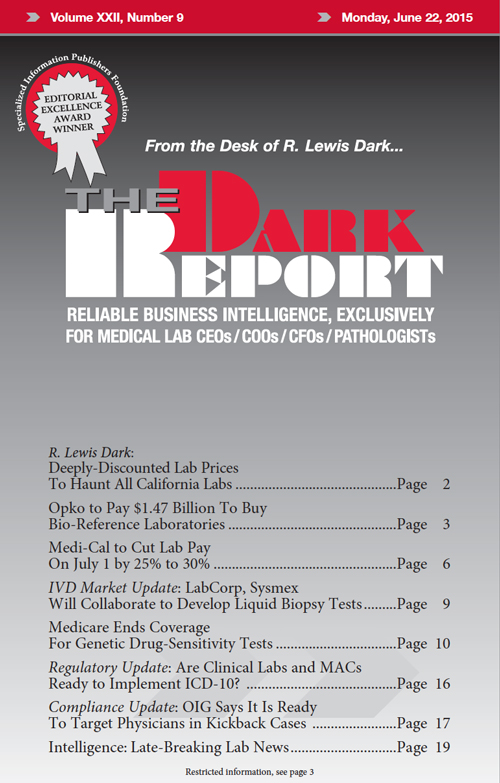CEO SUMMARY: Since 2011, state officials in California have aggressively cut laboratory testing fees for Medi-Cal, the state’s Medicaid program. Now state officials say they will implement a new methodology next month for determining lab testing fees. The new methodology is based on lab pricing data produced as a result of whistleblower lawsuits against labs that were settled in 2011. Should prices fall below the costs of performing these tests, the Medi-Cal program may see legal challenges from the lab industry.
To access this post, you must purchase The Dark Report.


